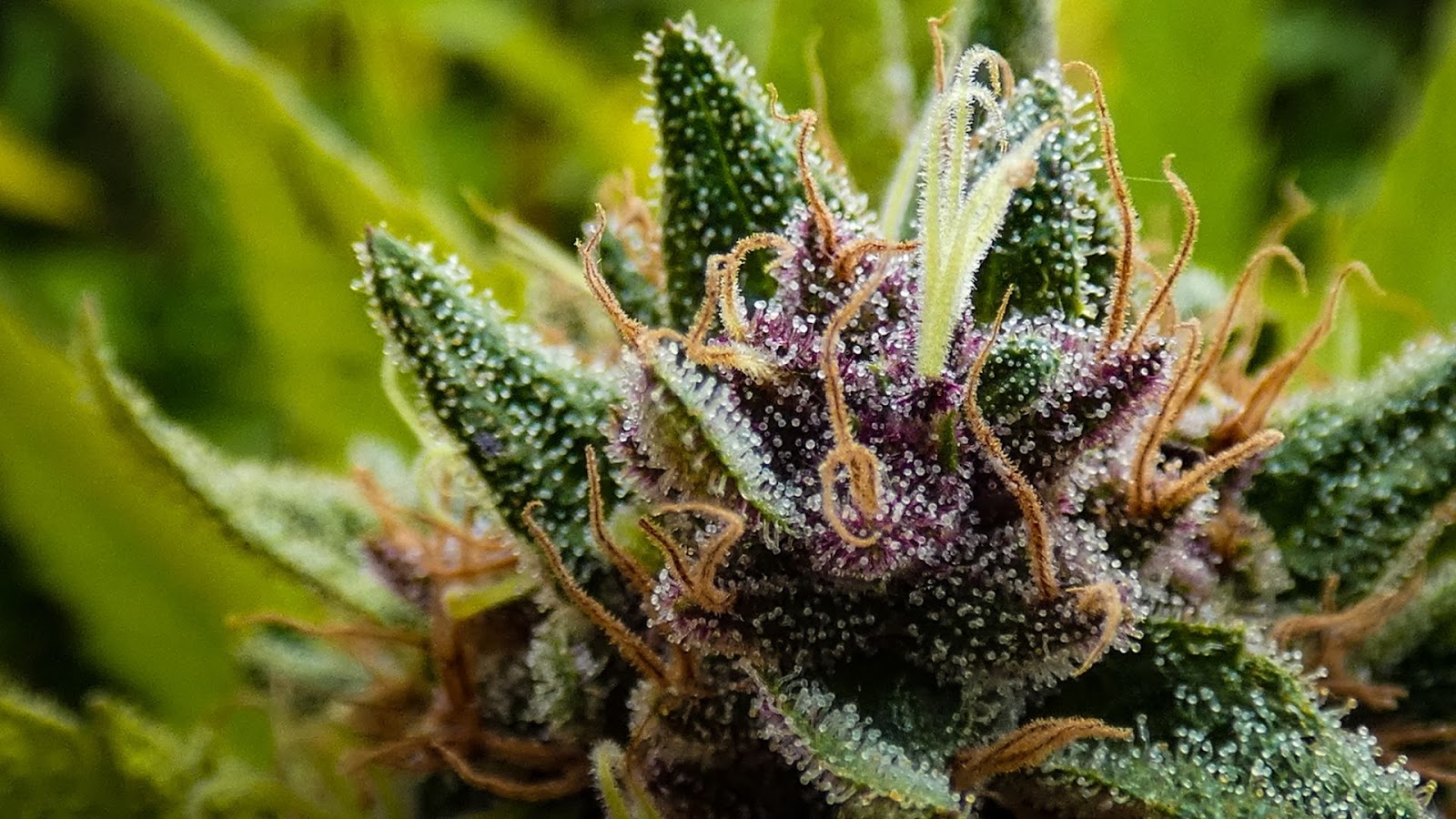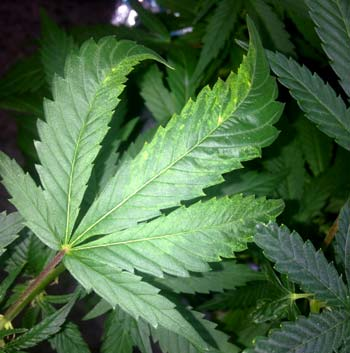
Watch Out For These Viruses And Viroids Infecting Cannabis!
As a content and community manager, I leverage my expertise in plant biotechnology, passion for tissue culture, and writing skills to create compelling articles, simplifying intricate scientific concepts, and address your inquiries. As a dedicated science communicator, I strive to spark curiosity and foster a love for science in my audience.


Introduction
Viruses are considered to be the world’s second-largest cause of crop loss, after Fungi. In recent years, viruses have become a major challenge for Cannabis propagation. In North America, it was estimated that around 50% of Cannabis would have been infected by one or many viruses or viroids.
The growers are dealing with negative outcomes of decreased vigor, lower flower yields, and reduced production of primary target compounds, including terpenoids and cannabinoids.
Cannabis is prone to many viral and viroid infections, including alfalfa mosaic viruses (AMV), cucumber mosaic virus (CMV), Arabis mosaic virus (ArMV), and hop latent viroid (HLVd) are some common viral and viroid pathogens that impact cannabis business.

It’s essential to follow certain measures to protect the plant from such pathogens and increase its vigor and yield. For example, screen mother plants before using them for propagation, observe symptoms, study molecular changes, and perform regular microscopic and molecular studies.
The first level of protection for plants from pathogens starts at the physical level. The growers need to study and understand the symptoms of plants. Also, it is necessary to differentiate and identify that the resulting symptoms are not the result of nutrient deficiency. For this, one needs to have knowledge of the nature of these viruses and viroids.
In this article, we cover five viroids and viruses, including their nature and symptoms they produce, that commonly infect the Cannabis plant and negatively impact its potency, vigor, and yield.
Viruses and Viroids Infecting Cannabis: 5 Types
Among several factors that can affect the growth, quality, and yield of healthy Cannabis, one is plant diseases. Once established, it's difficult to control or get rid of these diseases and pathogens.
Here’re five types of viruses and viroids that commonly infect Cannabis and affect its growth and yield.
1. HpLVD (Hop Latent Viroid)
HpLVD is a single-stranded viroid, belonging to Cocadviroidgenus, that causes dudding or stunting of Cannabis. They usually infect hop plants and completely depend on their hosts for the replication of their genetic material, RNA.
HpLVD was first identified in 1966 by Schmidt. The pathogen neither kills its hosts nor shows any significant symptoms, such as leaf curling or yellowing. However, You might observe some symptoms either at the flowering stage or stress conditions, such as:
- Stunted growth of plants
- Reduced vigor
- Brittle stems with less mass of flowers
- Malformation and chlorosis on leaves
- Stunted trichomes
- Abnormal branching
The pathogen mainly spread through infected tools and equipment. Thus, growers are suggested to use clean tools before growing Cannabis or other plants.
The major challenge associated with growing hop latent viroid is difficulty in early detection and the unavailability of procedures to fully eradicate the pathogen from Cannabis.

2. Lettuce Chlorosis Virus
In recent years, Lettuce Chlorsis Viruses (LCV) have become a serious threat to Cannabis propagation and some other crops. It’s a linear single-stranded RNA virus and is commonly found in Lettuce.
Its symptoms are:
- Yellow spots in older leaves
- Interveinal chlorosis
- Thich and brittle leaves
- Occasional necrosis
Though the plant doesn’t kill its host, it does affect the yield and quality of Cannabis plants. Further, the infected plant will have smaller flowers with fewer trichomes and lesser terpenes and cannabinoids.
LCV can spread via infected plants or through pests. Some studies also claim its transmission through water.

3. Tobacco Mosaic Virus
Many mosaic viruses, including cucumber mosaic virus, alfalfa mosaic virus, and tobacco mosaic virus can infect the Cannabis plant. The Tobacco Mosaic Virus is an RNA-based virus that was first detected in Tobacco plants in 1892. However, scientists have reported that the virus has the ability to infect around 125 plant species, such as tomatoes, cucumbers, and tomatoes.
The virus can spread easily through contact with the infected plant species or your hands (if one smokes). You can identify the infected Cannabis plants by the following symptoms:
- Twisted or curved leaves
- Yellow stripes or spots
- Mosaic patterns
- Uneven stripes of light and dark green on leaves
- Curved leaves with yellow stripes or mottling
- Necrosis
- Stunting
- Reduction of Yield and potency
However, these symptoms can also be observed due to nutrient deficiencies in plants. Thus, you need to keep an eye on the growth of your plant and the spread of infection to other plants.

Symptoms of HpLVD in Cannabis leaves
4. Beet Curly Top Virus (BCTV)
The Beet Curly Top Virus was first detected in sugar beet in Nebraska in 1888. It’s a single-stranded circular DNA virus.
Cannabis is a sensitive host to the virus, particularly in young plants. Typically, the virus causes top curling of the plant. However, a range of symptoms has also been observed in the plant most likely either caused by differences in the virus strains or genetic differences in plants’ response to the virus.
Some of the symptoms include:
- Yellowing and molting at the base of the leaf
- Pale yellow plants
- Upward leaf curling
- Stunted plant
- Twisted leaf or stunted main stem
The BCTV virus can spread via an insect vector leafhopper. The insect picks up the virus from an infected plant and transfers it to the others while feeding on them.
5. Cannabis Cryptic Virus
Cannabis Cryptic Virus (CanCV) is a double-stranded RNA virus, belonging to the family of Partitiviridae. The virus does not cause any disease or show any symptoms alone. Rather, it interacts with other fungal or viral pathogens (already infecting the host) and produces disease symptoms in plants—meaning these viruses only show symptoms in the presence of any other pathogen.
The symptoms observed in the plants infected by the Cannabis Cryptic Virus are:
- Interveinal yellow streaks
- Interveinal chlorosis
- Wrinkled upward leaf margin
The virus can be transmitted through seeds, which means it can be transferred to the next generation of plants if grown using infected seeds. Therefore, it’s necessary to screen the crops before cross-breeding.

Join Cannabis Tissue Culture Master Class To Get Solutions to All Cannabis Propagation Challenges
Tissue culture is an advanced and efficient technique to get rid of these pathogens and increase your plant quality and yield.
But, it needs some basic knowledge to get started with the technique, and that too with Cannabis!
But, not to worry! We’ve got you covered!
This coming 13th of October we are organizing a Cannabis Tissue Culture Master Class for all levels of Cannabis growers—whether a beginner or an expert.
The Cannabis Tissue Culture Master Class educates you and provides you with all the resources you need to get started in your journey to produce disease-free Cannabis, meeting all regulatory complaints.
You can join the basic courses, where you will learn more about basic Cannabis tissue culture like media preparation, meristem dissection, and cannabis micropropagation, or even join the expert courses, where we will dive further into pathogen remediation by media amendments, gender screening, long-term storage solutions, procedures, protocols, and solutions to prevent contamination from your lab and increase Cannabis yield!
Additionally, you will get to network with tissue culturists from around the world and will receive a certificate to show you are now the expert!
Thousands of cannabis growers have already joined and booked their tickets to level up their Cannabis propagation business.
Don’t stay behind, Book Your Tickets Now!
Blog Categories
View by Level
Popular Blogs

6 Plant Tissue Culture Books to Keep Learning
Introduction Most of us are fans of books when it comes to learning a topic in detail and in a...
Read More
New Technical Agar Vs Supreme Agar
Introduction What’s the secret element that supports and holds plants in vitro? Not sure? It’s the solidifying agent. Solidifying agents...
Read MoreSubscribe to Our Newsletter








Join the conversation
Your email address will not be published. Required fields are marked